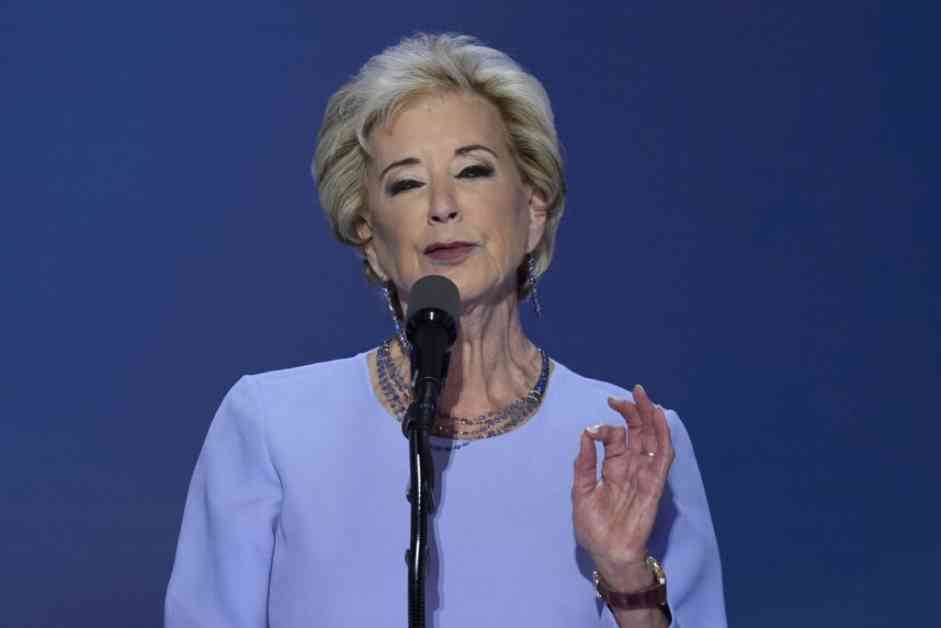President-elect Donald Trump has chosen Linda McMahon, a longtime ally and financial backer, as his nominee for Secretary of Education. Despite education not being a central focus of the 2024 presidential campaign, McMahon’s appointment signals a potential shift in priorities for the incoming administration.
McMahon, known for her role in building the World Wrestling Entertainment empire, also chairs the board of the America First Policy Institute, a group that has outlined a detailed education policy agenda. This agenda, which emphasizes sending education back to the states, could guide McMahon’s approach to education policy if confirmed by the Senate.
While some observers expected Trump to appoint someone who would advocate for shutting down the Department of Education, McMahon’s nomination suggests a different direction. Her background as a business leader and political figure in Connecticut sets her apart from the current Secretary of Education, Miguel Cardona, who has a long history in the field of education.
Despite her limited background in education, McMahon is not entirely inexperienced in the field. She has served as a trustee for a college and was a member of the Connecticut State Board of Education. McMahon’s bipartisan approach to issues like school choice and Pell Grants has earned her both praise and criticism, highlighting the complexities of education policy in the United States.
The America First Policy Institute, of which McMahon is a key figure, has put forth a detailed framework for education reform. This framework, which contrasts with what it calls “America Last” policies, includes proposals to promote civic education, eliminate critical race theory, and reduce the influence of teachers unions.
Critics of McMahon’s nomination, including education groups and teachers unions, argue that her agenda would undermine public schools and harm students. However, supporters like Frederick Hess of the American Enterprise Institute urge an open-minded approach to understanding McMahon’s views and potential impact on education policy.
As McMahon’s nomination moves forward, questions about her vision for education and the future of the Department of Education remain unanswered. The controversy surrounding her past involvement with WWE and allegations of misconduct have added to the scrutiny of her appointment. Whether McMahon will champion public schools, promote school choice, or pursue other education reforms will become clearer as her confirmation process unfolds.
Overall, McMahon’s nomination as Secretary of Education reflects the broader shifts and debates within the education landscape in the United States. With competing visions for the role of the federal government in education and the future of American schools, McMahon’s leadership could shape the direction of education policy for years to come.




















